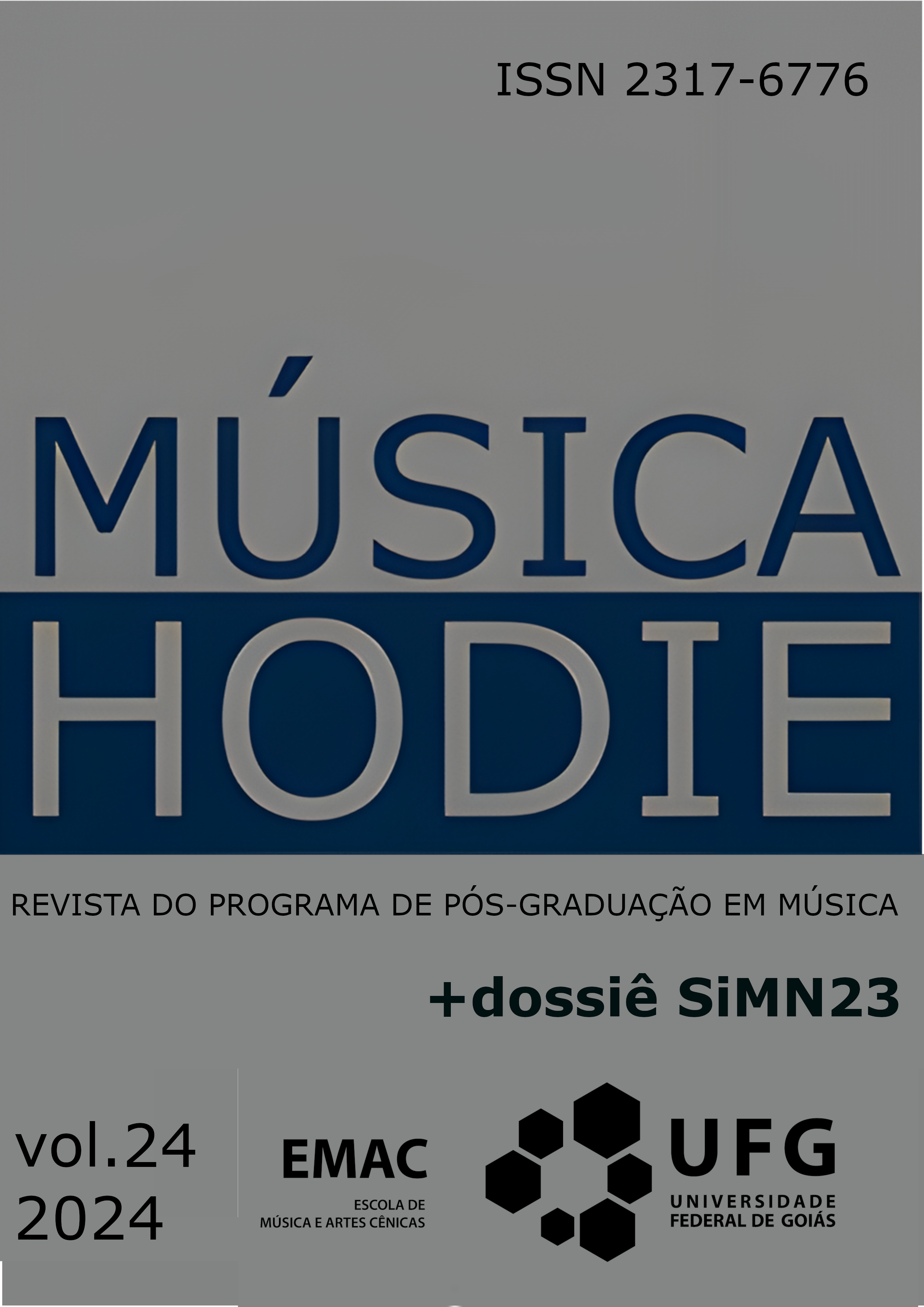Collective musical composition in the training of generalist teachers:
a qualitative and interpretative approach
DOI:
https://doi.org/10.5216/mh.v24.79588Keywords:
collective musical composition, music education, teacher trainingAbstract
This qualitative, interpretative study addresses the theme of musical creation/composition in the training of generalist teachers. It analyzes the processes of collective musical composition developed throughout a training program in light of the knowledge construction processes and professional learning of generalist teachers in the field of music. The formative model prioritized a pedagogical proposal based on cooperative learning processes centered around a compositional challenge conducted in small groups. The proposal aimed to create a safe learning environment potentially rich in meanings to allow future teachers to relate it with their previous structure of meanings, interests, aesthetics and, musical preferences. The realization of this planning allowed for the collection and analysis of data from 15 group portfolios and 58 individual reflections. Two main research focuses are integrated into the analytical process of this work: identifying and reflecting on the characteristics of the developed collective creation/composition processes and understanding the pedagogical implications of this approach for the pedagogical practice of future teachers. The implications of this study aim to contribute to the reflection and discussion of the processes of knowledge construction and professional learning of generalist teachers in the music field of creation/composition.
Downloads
Downloads
Published
Versions
- 2024-09-18 (2)
- 2024-09-13 (1)















